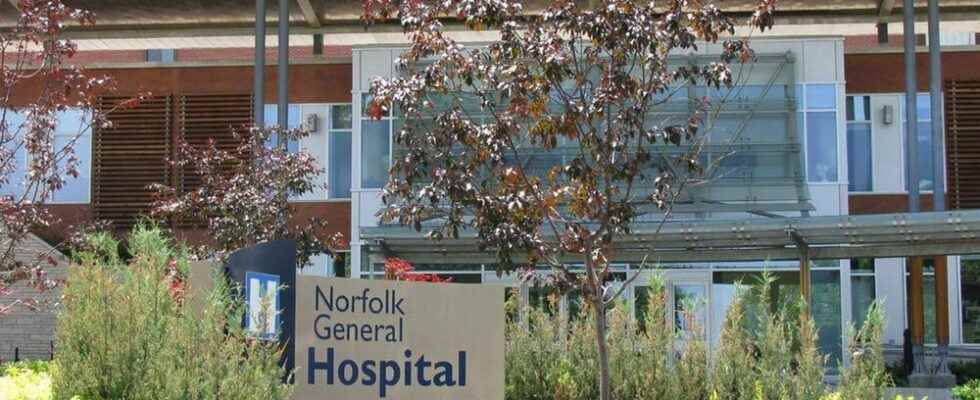Norfolk General Hospital running skeleton nursing crews

When Norfolk General Hospital in Simcoe closed its emergency department for 24 hours in late October — starting residents and forcing paramedics to divert patients out of town — the Simcoe hospital warned more closures were likely due to a shortage of ER nurses.
That prediction came true the night of Dec. 3, when the ER shut down from 9 pm until 7 am the next morning.
Five nurses had been scheduled to work in emergency that night, hospital spokesperson Aaron Gautreau told The Hamilton Spectator in an email.
“However, several nurses reported flu-like symptoms and were unable to report to work,” he said.
Gautreau said the hospital tried to find staff to fill in, but after striking out, they made the call to close the department for the night.
The decision was announced on social media and in a press release less than 90 minutes before the closure took effect, despite the hospital’s policy of giving 24 hours’ notice of any service disruption.
“We felt that we had to make this call for safety reasons, for everybody that might have presented to the emergency department,” Gautreau said.
“We’ve seen a rise in the number of staff and physicians off ill due to COVID-19 and influenza-like illnesses. Everyone working at NGH has gone above and beyond over the past two-and-a-half years. The reality is they are exhausted.”
Norfolk EMS Chief Sarah Page said paramedics responded to 11 emergency calls during the latest ER closure, with “no serious incidents.”
The emergency department at Norfolk General needs a minimum of five nurses to open, so any illness among the five scheduled on Dec. 3 would have put the shift in jeopardy. But roughly half of the hospital’s 60 ER nursing positions are currently unfilled, making lean shifts a reality.
Hiring more doctors and nurses is one of the hospital’s “top priorities,” Gautreau said.
But the challenge is acute. Staffing shortages at Ontario hospitals predated the pandemic, and COVID-19 worsened the burnout rate among front-line health-care workers.
“Despite aggressive recruitment efforts by NGH, the number of qualified applicants is not enough to fill vacancies,” Gautreau said.
Page expects more difficult days ahead as health-care workers struggle under “a huge staffing crisis and a huge backlog of care.”
“We are in crisis mode in the health-care system, despite, I think, everyone’s illusion that we’re just managing and things will be fine,” she told The Spectator.
The pandemic kept people away from hospitals and doctors’ offices, which Page said “has now resulted in worsening symptoms and exacerbation of their conditions, or things that weren’t discovered before now being discovered, which is putting even more stress on the health- care system.”
One solution to the rising demand, she said, is to better prepare paramedics to treat patients on site or refer them to non-emergency care after addressing relatively straightforward health issues like low blood sugar.
“It’s very much a systemic issue that is not going to be solved quickly, but definitely needs some big ideas and greater thought about the bigger picture,” Page said.
JP Antonacci is a Local Journalism Initiative reporter based at the Hamilton Spectator. The initiative is funded by the Government of Canada.
